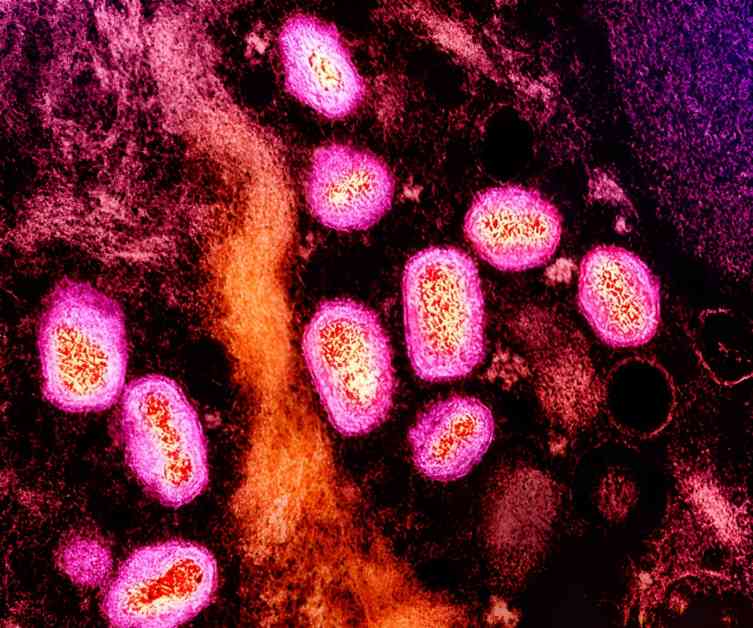A new strain of the virus responsible for monkeypox, known as clade Ia, appears to be spreading rapidly from person to person in Central Africa. This development is concerning as it adds complexity to efforts to control the spread of the disease in the region, which has seen a significant increase in cases in recent months. Researchers are puzzled by what is driving this surge and are investigating the genetic mutations that indicate sustained human-to-human transmission.
The virus has historically been transmitted from animals to humans in Central Africa, but the new findings suggest that clade Ia is now spreading between people, potentially through sexual contact, in an outbreak in Kinshasa, the capital of the Democratic Republic of the Congo (DRC). This shift in transmission dynamics highlights the evolving nature of viruses and the need for ongoing research to understand how they adapt and spread.
In addition to clade Ia, other variants of the monkeypox virus, such as clade Ib, have also been causing outbreaks in different regions. Clade Ib, which emerged in late 2023, has spread to several countries outside of Africa and has resulted in thousands of infections and deaths. The presence of multiple strains circulating in densely populated areas like Kinshasa poses a significant risk to public health and could potentially lead to international spread due to the city’s status as a travel hub.
Health officials are closely monitoring the situation and using genomic sequencing to track the outbreak. By analyzing virus samples from infected individuals, researchers have identified specific genetic mutations that indicate sustained human-to-human transmission of the virus. These findings suggest that the virus is evolving in response to the immune system’s defenses and adapting to spread more efficiently among humans.
The emergence of clade Ia as a potential sexually transmitted virus raises new questions about the factors driving the spread of monkeypox and the impact of human behavior on disease transmission. Researchers are investigating why certain strains have emerged in recent years and what environmental, social, and biological factors may be contributing to their spread.
Despite these challenges, plans to distribute monkeypox vaccines in affected regions are moving forward, with a focus on areas with the highest number of infections. Health officials are committed to controlling the outbreak and preventing further spread of the virus, but ongoing research and surveillance are essential to understanding the evolving nature of the disease and developing effective strategies to combat it.




